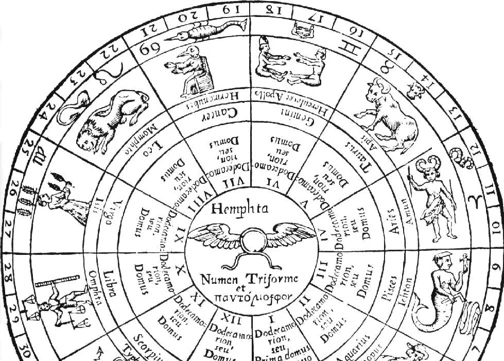Throughout history, astrology has fascinated and perplexed people from all corners of the globe. From ancient civilizations to the digital age, the practice of astrology has evolved and adapted, leaving an indelible mark on cultures and societies. Delving into the rich tapestry of astrological history reveals the significant influence it has had on the way humans perceive and interact with the world around them. This article explores the fascinating evolution of astrology, tracing its origins in ancient civilizations such as Babylon, Egypt, China, and Greece. It then examines astrology’s role in medieval Europe, the birth of modern astrology, and finally, its current state in the digital age. Join us on this captivating journey as we unravel the intricate threads of astrology’s past and present.
Contents
- Astrology in Ancient Civilizations
- Astrology in Medieval Europe
- The Birth of Modern Astrology
- Astrology in the Digital Age
- Conclusion
-
Frequently Asked Questions
- What is astrology?
- How old is astrology?
- How does astrology work?
- Can astrology predict the future?
- What are the different types of astrology?
- Is astrology a science?
- What is the zodiac?
- Can astrology help in self-discovery?
- Is astrology just based on sun signs?
- Can astrology be used for compatibility?
- References
-
Frequently Asked Questions
- 1. How far back does astrology date?
- 2. What is the significance of Babylonian astrology?
- 3. How did Egyptian astrology differ from other ancient astrological systems?
- 4. What are the key features of Chinese astrology?
- 5. How did the Renaissance contribute to the revival of astrology in Europe?
- 6. What role did Carl Jung play in the evolution of astrology?
- 7. What is psychological astrology?
- 8. How has the internet impacted astrology in the modern age?
- 9. Are online astrology readings reliable?
- 10. What are some popular astrological software used today?
- References
- Read More
Astrology in Ancient Civilizations
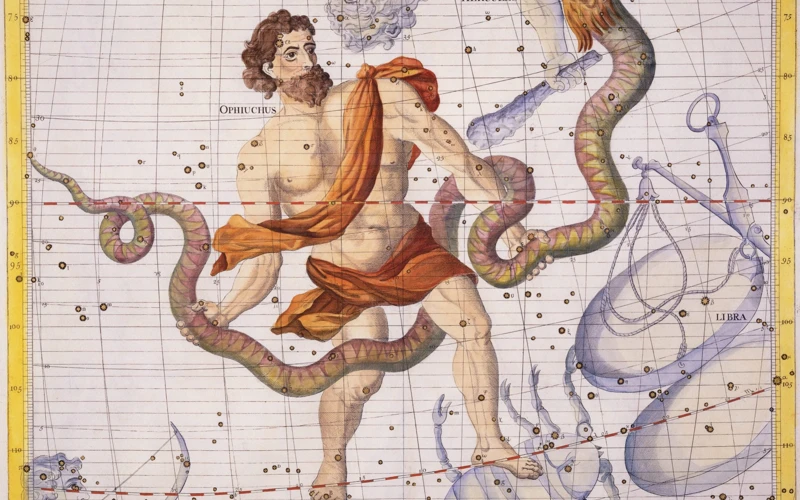
Astrology in ancient civilizations holds a captivating allure, as it offers a glimpse into the beliefs and practices of ancient cultures. Babylonian astrology is often regarded as one of the oldest known systems, with scholars deciphering clay tablets that contain detailed celestial observations and astrological predictions. The Babylonians assigned immense significance to astronomical events, using them to guide their decisions and predict the fate of individuals and nations. Meanwhile, Egyptian astrology centered around the worship of the sun god Ra, and the movements of celestial bodies were believed to hold immense power over human destiny. In Chinese astrology, the zodiac played a central role, with each year being associated with an animal sign that influenced an individual’s characteristics and fate. Finally, Greek astrology was heavily influenced by the teachings of prominent figures like Ptolemy and the concept of the zodiac, which divided the sky into twelve equal segments. These ancient civilizations laid the foundation for the astrological practices that we continue to explore and decipher today. For a deeper understanding of the differences between Western and Vedic zodiacs, click here.
Babylonian Astrology
Babylonian astrology, one of the earliest known astrological systems, offers a fascinating glimpse into the ancient beliefs and practices of the Babylonian civilization. This ancient Mesopotamian society assigned great importance to the movements of celestial bodies, believing that they held significant influence over human destinies. The Babylonians meticulously observed the movements of the sun, moon, planets, and stars and recorded their celestial observations on clay tablets. These tablets contained detailed astronomical data, including the positions and configurations of celestial bodies at specific times. Astrologers in Babylon analyzed these observations to make predictions about various aspects of life, including personal fortunes, natural disasters, and political events.
The Babylonian astrological system consisted of a combination of celestial omens, divination, and the interpretation of celestial events. They believed that the gods communicated their wills through these celestial signs. For instance, a particular alignment of planets or the appearance of a comet was regarded as an omen and interpreted as a message from the gods. These celestial omens were then used to guide the ruling elite in their decision-making processes, such as when to engage in battle or when to take important political actions.
In Babylonian astrology, each planet was associated with a deity, characteristic, and specific set of attributes. For example, the planet Venus was associated with the goddess Ishtar and represented love, beauty, and fertility. Astrologers combined these planetary associations with the zodiac signs to create a complex system of predictions and interpretations. It is important to note that Babylonian astrology differs from the modern Western astrology we are familiar with today.
The Babylonian astrologers also believed in the concept of astrological houses, which divided the sky into twelve equal segments. These houses were associated with different areas of life, such as career, family, and relationships. By analyzing the positions of the planets in these houses, astrologers made predictions and provided guidance on various aspects of an individual’s life.
The legacy of Babylonian astrology lives on in modern astrology, with many of the concepts and techniques originating from this ancient civilization. Exploring the roots of Babylonian astrology provides valuable insights into the development of astrological practices and our understanding of the cosmos. To delve deeper into the traits and characteristics associated with zodiac signs, click here.
Egyptian Astrology
Ancient Egyptian astrology is a fascinating realm that unveils the mysteries of the celestial world as perceived by the Egyptians. In this ancient civilization, the sun played a central role in their astrological beliefs, and the cult of the sun god Ra was prominent. The Egyptians believed that each individual had a natal sun sign that determined their personality traits and destiny. The sun sign was determined by the position of the sun at the time of a person’s birth. They also associated specific animals with each month of the year, similar to the zodiac signs in other cultures. The Egyptians believed that these animals had a significant influence on an individual’s character and fate. The temples in ancient Egypt were adorned with astronomical depictions and alignments, showcasing the importance of the stars and planets in their beliefs. The Egyptians carefully observed the movements of celestial bodies, especially the stars and the planets. They believed that these celestial movements were interconnected with human events and could provide insight into the future. While Egyptian astrology shares some similarities with other ancient astrological practices, such as the worship of celestial bodies, it also possesses its own unique characteristics and interpretations. To dive deeper into the secrets of innovation and change in astrology, particularly regarding the planet Uranus, click here.
Chinese Astrology
Chinese astrology, a rich and ancient practice, holds a profound place in the history and culture of China. Dating back over 2,000 years, Chinese astrology is deeply rooted in the belief that the positions and movements of celestial bodies have a significant impact on human destiny and personality traits. At the core of Chinese astrology is the zodiac, which consists of twelve animal signs that rotate in a cycle of years. Each animal sign is associated with unique characteristics and attributes that are believed to shape an individual’s personality and destiny. These animal signs include the Rat, Ox, Tiger, Rabbit, Dragon, Snake, Horse, Sheep, Monkey, Rooster, Dog, and Pig. The Chinese zodiac not only determines an individual’s personality but also influences compatibility and offers guidance on relationships, career choices, and even health. Chinese astrology incorporates the five elements – Wood, Fire, Earth, Metal, and Water – which further influence personality traits and compatibility. Chinese New Year, based on the lunar calendar, marks the transition between zodiac signs and is widely celebrated with traditional festivities and customs. The prominence and influence of Chinese astrology extend beyond China, as many people around the world refer to their Chinese zodiac sign for guidance and insight. As a dynamic and complex astrological system, Chinese astrology offers a fascinating glimpse into the interplay between celestial forces and human existence.
Greek Astrology
Greek astrology played a significant role in shaping the development of astrology as we know it today. Influenced by Egyptian and Babylonian astrological practices, the Greeks introduced several key concepts and ideas that continue to influence astrological interpretation. One of the most crucial contributions was the division of the sky into twelve equal segments, known as the zodiac. Each segment was associated with a constellation and represented a particular personality trait or characteristic. This division of the zodiac into twelve signs laid the foundation for Western astrology. Greek astrologers also developed the concept of planetary rulership, assigning each planet to rule over certain signs and influencing their traits and attributes. For example, Mercury was associated with communication and intellect, while Venus represented love and beauty. Greek astrology also introduced the belief that celestial events and planetary alignments had a direct impact on human life, shaping destinies and influencing individual behavior. The Greek astrologer Ptolemy is often credited with compiling extensive astrological knowledge in his renowned work, the Tetrabiblos, which provided a comprehensive guide to astrological interpretation. The influence of Greek astrology spread throughout Europe and the Arabic world, setting the stage for the development of medieval and modern astrology.
Astrology in Medieval Europe
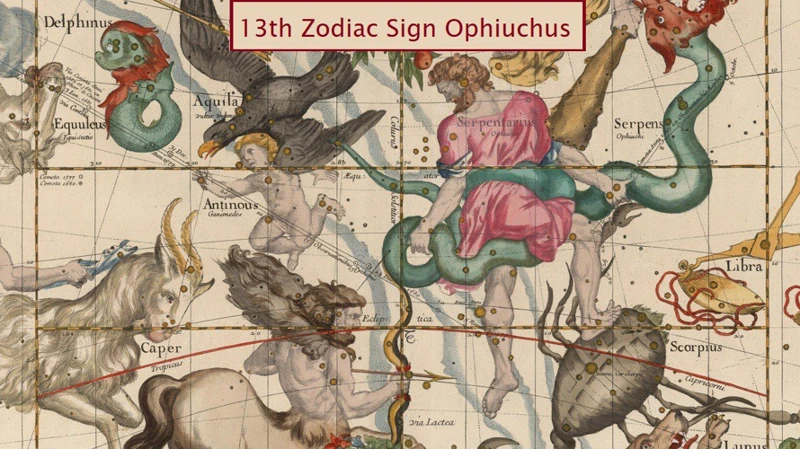
During the medieval period, astrology in Europe experienced a significant transformation influenced by various factors. One major influence was the spread of Islamic knowledge and scholarship, which brought advanced mathematical and astronomical techniques to the region. Islamic scholars translated and preserved ancient Greek texts, including those related to astrology, which sparked a revival of interest in the subject. The Renaissance further propelled the study of astrology, with prominent figures like Kepler and Copernicus incorporating astrological principles into their astronomical theories. Astrology played a crucial role in the lives of nobles and monarchs, who consulted astrologers for guidance on matters such as warfare, politics, and personal fortunes. The Age of Enlightenment, however, saw a decline in the popularity of astrology as scientific reasoning and skepticism took hold. Nonetheless, astrology maintained a devoted following among individuals seeking personal insights and in the occult movements of the time.
The Influence of Islam
The Influence of Islam on astrology during the medieval period cannot be understated. Islamic scholars made significant advancements in the field, translating and preserving ancient astrological texts from cultures such as the Greeks, Babylonians, and Persians. Al-Kindi, an Arab philosopher and polymath, played a crucial role in translating Greek astrological works into Arabic, making them accessible to the Islamic world. This translation movement led to the assimilation of astrological ideas and techniques into Islamic culture, resulting in the development of new astrological traditions. One such tradition was Arabian astrology, which merged elements of Hellenistic and Persian astrology with Islamic beliefs. Arabian astrologers introduced concepts such as planetary aspects, house systems, and Arabic part calculations.
It is important to note that astrology in Islam was not universally accepted, as there were divisions among scholars regarding its legitimacy. While some embraced astrology and saw it as a means of understanding God’s creation, others condemned it as a form of divination and thus prohibited. Nevertheless, astrology continued to thrive in Islamic societies, particularly under the Abbasid Caliphate in the 8th to the 13th centuries. Islamic astrologers made advancements in the study of the Arabic parts, lunar mansions, and the use of fixed stars in predictive astrology.
The influence of Islam on astrology brought about a flourishing period of astrological knowledge and scholarship. It fostered a rich exchange of ideas between different cultures and laid the groundwork for astrology’s future development. The Islamic Golden Age was a time when scientific and philosophical pursuits were valued and encouraged, leaving a lasting impact on the field of astrology.
The Renaissance and Astrological Revival
The Renaissance period marked a significant revival in astrology, as it gained renewed interest and began to flourish once again. During this time, there was a resurgence in the study and practice of astrology, as scholars and intellectuals sought to explore the connections between science, art, and the cosmos. Astrology was embraced by prominent figures such as Leonardo da Vinci and Johannes Kepler, who recognized its potential as a means of understanding the natural world and unlocking hidden knowledge. The Renaissance saw a shift towards a more humanistic approach to astrology, with an emphasis on individualism and the role of the individual in shaping their own destiny. Astrology became intricately entwined with other disciplines such as medicine, alchemy, and astronomy, as scholars sought to expand their understanding of the world and the human experience. The Renaissance and Astrological Revival marked a period of great innovation and exploration in astrology, planting the seeds for its continued development and influence in the centuries to come.
Astrology in the Age of Enlightenment
During the Age of Enlightenment in the 17th and 18th centuries, astrology underwent a significant transformation and faced challenges from the rise of scientific rationalism. Despite this, astrology continued to have its loyal followers and adapted to the changing cultural landscape.
1. Emergence of Astrological Almanacs: In this period, astrology became closely associated with the production and circulation of almanacs. These almanacs contained astrological predictions, celestial observations, and advice on various aspects of life such as agriculture, weather forecasting, and personal guidance. They catered to a wide audience and served as popular sources of astrological information.
2. Criticism and Decline: The Age of Enlightenment valued reason and scientific inquiry, leading to a decline in the credibility of astrology. Prominent figures such as Isaac Newton and Francis Bacon dismissed astrology as a superstitious practice. The scientific community increasingly viewed astrology as unscientific and lacking empirical evidence. As a result, astrology faced criticism and lost its position as a respected discipline.
3. The Rational Enlightenment Approach: However, some individuals sought to reconcile astrology with the Enlightenment ideals of reason and logic. Astrologers like Jean-Baptiste Morin de Villefranche attempted to provide astrological interpretations based on scientific principles. They introduced new techniques such as considering planetary aspects and emphasizing mathematical calculations to provide more precise predictions.
4. Astrology and Political Decision-Making: Despite skepticism, astrology still held sway over political decision-making during this period. Monarchs and rulers consulted astrologers for guidance in matters of state, including determining the most auspicious times for significant events or battles. Astrology continued to exert its influence in the background, albeit with decreasing public acceptance.
5. Continued Popularity: Despite the rationalistic outlook of the Age of Enlightenment, astrology maintained a significant following among the general public, particularly among the upper classes. Astrology continued to be practiced in secret or under the guise of pseudonyms, indicating that many people still had a fascination with astrological divination and predictions.
6. The Societal Impact: The growing popularity of scientific reasoning and the accompanying skepticism towards astrology led to a shift in societal attitudes. The legitimacy of astrology was increasingly questioned, eventually leading to its relegation to the realm of entertainment and popular culture rather than a respected scientific discipline.
7. The Legacy: The Age of Enlightenment contributed to the marginalization of astrology, setting the stage for its later revival in the 19th and 20th centuries. Astrology would undergo further transformations and adaptations in the face of scientific advancements and societal changes, ultimately shaping its modern-day form.
Astrology in the Age of Enlightenment reflects the complex interplay between tradition and the pursuit of reason during a time of profound intellectual and cultural change. The tension between astrology and the rise of scientific rationalism laid the groundwork for the evolution of astrology as it transitioned into the modern era.
The Birth of Modern Astrology
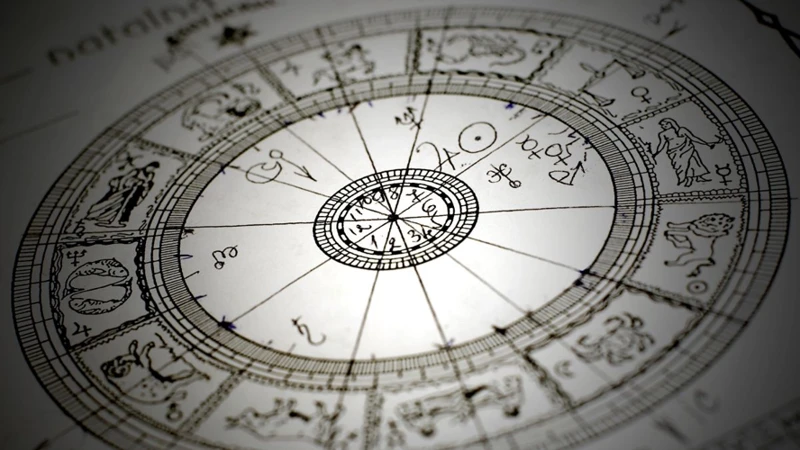
The birth of modern astrology marked a pivotal turning point in the evolution of this ancient practice. One key figure in this shift was Carl Jung, a Swiss psychiatrist and psychoanalyst who integrated astrology into his theories of psychology. Jung believed that astrology provided valuable insights into the human psyche and could be used as a tool for self-discovery and personal growth. Another significant development was the emergence of psychological astrology, which emphasized the inner experiences and subjective meanings of astrological symbols. This approach aligned with the broader humanistic movement of the 20th century, which emphasized individuality and self-actualization. The exploration of astrology through a psychological lens allowed for a deeper understanding of the human condition and the interplay between the individual and the cosmos. By unraveling the secrets of Uranus and its association with innovation and change, astrologers delved into the realm of societal and technological advancements. The birth of modern astrology not only revitalized the practice but also opened up new avenues for its interpretation and application.
The Role of Carl Jung
The Role of Carl Jung:
– Carl Jung was a prominent figure in the field of psychology, and his contributions to astrology have had a profound impact on its development. He believed that astrology could provide valuable insights into an individual’s psyche and their journey towards self-discovery and personal growth. Jung saw astrology as a symbolic language that could help individuals explore their unconscious thoughts, feelings, and motivations.
– One of Jung’s key contributions was the concept of archetypes, which are universal and symbolic patterns that exist within the collective unconscious. He believed that the archetypes represented different aspects of human personality and experience, and that they could be understood and analyzed through the lens of astrology.
– Jung also explored the idea of synchronicity, which suggests that there are meaningful coincidences that occur in our lives. He saw astrology as a tool that could help individuals recognize and understand these synchronistic events, providing them with a deeper sense of purpose and meaning.
– Jung’s work opened up new possibilities for the integration of astrology and psychology, giving rise to the field of psychological astrology. This approach focuses on the psychological and symbolic meanings of astrological symbols and their interpretation in relation to an individual’s inner world.
– Today, many astrologers draw upon Jung’s theories and concepts in their practice, using astrology as a tool for personal growth, self-reflection, and understanding. Jung’s influence has helped shape astrology into a field that offers individuals a deeper understanding of themselves and their place in the world. To unravel the secrets of Uranus and its association with innovation and change, follow this link here.
Psychological Astrology and the Humanistic Movement
Astrology experienced a fascinating shift during the 20th century with the emergence of Psychological Astrology and its connection to the broader Humanistic Movement. This movement, which emphasized the value and potential of the individual, had a profound impact on astrology’s interpretation and application.
Psychological Astrology, popularized by influential figures such as Carl Jung and Dane Rudhyar, focused on the psychological aspects of astrology and placed importance on understanding the individual’s personality, motivations, and inner world – not just predicting future events. Astrology became a tool for self-reflection, personal growth, and individuation.
Central to Psychological Astrology was the concept of the horoscope as a symbolic representation of the individual’s psyche. This psychological approach sought to explore the depths of the unconscious mind and bring awareness to the various archetypes and complexes that shape human behavior.
The humanistic movement’s impact on astrology extended beyond the psychological realm. It emphasized the empowerment and agency of individuals, encouraging personal responsibility and self-development. Astrology became a means of self-discovery and self-expression, offering insights into one’s strengths, potentials, and areas for growth.
This integration of psychology and astrology paved the way for innovative astrological techniques and therapies. Astrologers started incorporating psychological counseling techniques, dream analysis, and other therapeutic modalities into their astrological consultations, providing a more holistic approach to personal development.
As the humanistic movement gained momentum, the practice of astrology became more widely accepted within academic and intellectual circles. It was no longer seen as a mere superstitious endeavor but as a valuable tool for self-exploration and understanding the complexities of the human psyche.
The profound influence of Psychological Astrology and the Humanistic Movement on the field of astrology continues to shape its practices and interpretations today. The emphasis on personal growth, self-awareness, and the exploration of the unconscious mind has made astrology a powerful tool for individuals seeking to navigate their inner world and live more fulfilling lives.
Astrology in the Digital Age
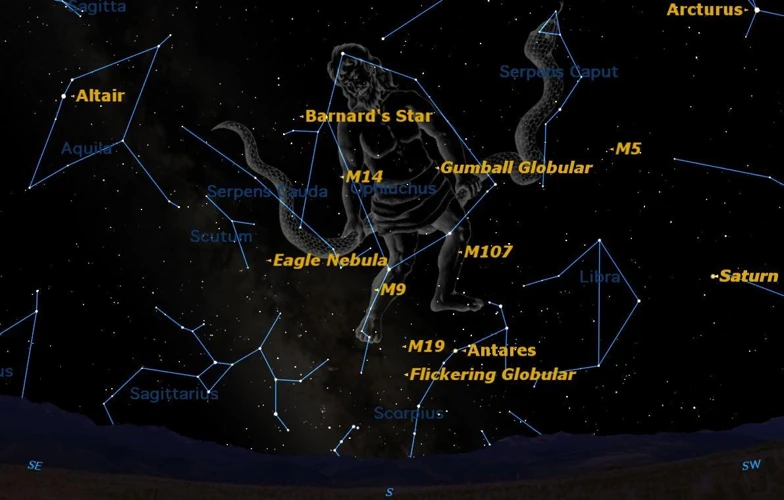
Astrology in the digital age has witnessed a remarkable transformation, with technology playing an integral role in its accessibility and popularity. The advent of the internet has heralded a new era of online astrology, where individuals can access horoscopes, birth charts, and astrological insights with just a few clicks. Online platforms have become a hub for astrological communities, allowing enthusiasts to connect, learn, and share their experiences. Social media has also become a powerful medium for astrology, with astrologers gaining large followings and sharing their forecasts, insights, and zodiac sign traits with a global audience. Technological advances have further propelled astrology, with astrological software providing extensive calculations, interpretations, and predictions. These digital tools have made astrology more accessible than ever before, allowing individuals to explore this ancient art and navigate their lives with celestial guidance.
The Rise of Online Astrology
The rise of online astrology has revolutionized the way people access and engage with astrological information and services. With just a few clicks, individuals can now explore their birth charts, consult astrological experts, and connect with like-minded enthusiasts from around the world. The internet has provided a platform for astrologers to share their knowledge and insights, reaching a wider audience than ever before. Online astrology websites and applications offer a wealth of resources, from daily horoscopes to personalized readings, catering to the diverse needs and interests of astrology enthusiasts. These platforms have also made astrology more accessible to a younger generation, who are increasingly drawn to its mystical allure. The internet has fostered the growth of online astrology communities, where individuals can discuss and share their experiences, knowledge, and fascination with astrology. These communities have created a sense of belonging, allowing individuals to connect with others who share their passion for the stars. The convenience and vast resources offered by online astrology have made it popular among individuals seeking guidance, self-discovery, and a deeper understanding of themselves and the world around them.
Social Media has revolutionized the way astrological communities connect and interact with one another. With the advent of platforms like Facebook, Twitter, and Instagram, astrologers and astrology enthusiasts from around the world can now easily share their knowledge, insights, and predictions. Social media provides a space for astrology enthusiasts to form online communities, join discussion groups, and engage in debates about various astrological topics. These platforms also allow astrologers to share their horoscopes, articles, and videos, attracting a wider audience and fostering a sense of community among like-minded individuals. Additionally, social media has given rise to the phenomenon of “astrology influencers,” popular figures in the astrological community who gain significant followings by sharing their interpretations and predictions. Through social media, astrology has become more accessible, allowing people to explore and learn about this ancient practice on a global scale. It has opened up new avenues for discussions, debates, and collaborations, enabling astrologers and enthusiasts to connect and learn from one another like never before.
Technological Advances and Astrological Software
Technological advances have revolutionized the world of astrology, introducing a whole new level of precision and accessibility. One of the most significant developments in recent years is the emergence of astrological software. This sophisticated software allows astrologers and enthusiasts to generate detailed birth charts, analyze planetary positions, and offer accurate interpretations. With just a few clicks, users can access a wealth of information that was once only available to seasoned practitioners. Astrological software also enables the calculation of planetary transits, progressions, and synastry, providing additional insights into the dynamics between celestial bodies and their impact on individual lives. These technological advancements have made astrology more accessible to a wider audience. Online platforms and mobile applications have allowed people from all walks of life to explore and engage with astrology, breaking down geographical barriers and connecting astrological communities around the globe. The convenience and user-friendly interfaces of these technologies have undoubtedly played a significant role in the increasing popularity and acceptance of astrology in the digital age. The integration of technology into astrology has not only enhanced accuracy and efficiency but has also opened up new avenues for exploration and discovery. As technology continues to advance, we can expect further innovations in astrological software, providing even more detailed analysis and personalized insights for enthusiasts and practitioners alike.
Conclusion

In conclusion, the evolution of astrology throughout history showcases how this ancient practice has continuously adapted and thrived in different cultural contexts. From the ancient civilizations of Babylon, Egypt, China, and Greece, to its revival during the Medieval period, astrology has always been deeply intertwined with human beliefs, spirituality, and the quest for understanding the cosmos. The contributions of figures like Carl Jung and the emergence of psychological astrology have further expanded astrology’s reach and relevance in the modern world. In the digital age, astrology has embraced technological advancements, from online platforms that provide personalized readings to the formation of robust astrological communities on social media. The journey of astrology is a testament to its enduring appeal and ability to transcend time and geography. Whether one views it as a scientific discipline or a spiritual practice, astrology continues to hold a fascination for many, offering insights, guidance, and a unique lens through which to view the world and our place within it.
Frequently Asked Questions

What is astrology?
Astrology is a system of beliefs and practices that seeks to interpret the influence of celestial bodies on human affairs and personalities.
How old is astrology?
Astrology is believed to have originated thousands of years ago, with its roots traced back to ancient civilizations like Babylon, Egypt, and China.
How does astrology work?
Astrology suggests that the positions and movements of celestial bodies, such as the sun, moon, and planets, can impact a person’s traits and experiences based on their birth chart or horoscope.
Can astrology predict the future?
Astrology offers insights and potential trends, but it does not provide absolute predictions. It helps individuals understand the energies and possibilities available to them.
What are the different types of astrology?
There are various types of astrology practiced around the world. Western astrology, Vedic astrology, and Chinese astrology are among the most widely known and followed.
Is astrology a science?
Astrology is considered a pseudoscience by the scientific community, as its principles and claims are not based on empirical evidence and scientific methods.
What is the zodiac?
The zodiac is an imaginary belt in the sky divided into twelve equal parts, each representing a constellation. It is used in astrology to determine a person’s sun sign.
Can astrology help in self-discovery?
Astrology can provide insights into an individual’s strengths, weaknesses, and personality traits, facilitating self-awareness and personal growth.
Is astrology just based on sun signs?
Astrology considers many factors beyond sun signs, such as moon signs, rising signs, and the positions of other celestial bodies at the time of birth to create a more comprehensive birth chart.
Can astrology be used for compatibility?
Astrology offers a popular way to explore and compare relationship compatibility by examining the compatibility of different signs and aspects within a birth chart.
References
- Are Zodiac Signs Real? Here’s the History Behind …
- The 4000 Year History of Horoscopes: How Astrology Has …
Frequently Asked Questions

1. How far back does astrology date?
Astrology can be traced back to thousands of years ago, with its roots in ancient civilizations such as Babylon, Egypt, China, and Greece.
2. What is the significance of Babylonian astrology?
Babylonian astrology played a crucial role in the development of astrological practices. It focused on celestial events and their influence on human affairs, paving the way for future astrological systems.
3. How did Egyptian astrology differ from other ancient astrological systems?
Egyptian astrology placed a strong emphasis on the connection between celestial bodies and human characteristics, including the belief in the existence of individualized zodiac signs.
4. What are the key features of Chinese astrology?
Chinese astrology is based on a twelve-year cycle, with each year associated with a specific animal sign. It also considers the interaction of elements such as wood, fire, earth, metal, and water.
5. How did the Renaissance contribute to the revival of astrology in Europe?
The Renaissance period saw a renewed interest in astrology as scholars rediscovered ancient astrological texts and integrated them into their studies of the natural world and human consciousness.
6. What role did Carl Jung play in the evolution of astrology?
Carl Jung, a Swiss psychologist, recognized the psychological significance of astrology and used it as a tool for understanding and analyzing the human psyche.
7. What is psychological astrology?
Psychological astrology focuses on the inner exploration of an individual’s psyche through the interpretation of astrological charts, with an emphasis on personal growth and self-awareness.
8. How has the internet impacted astrology in the modern age?
The internet has provided a platform for the widespread dissemination of astrological knowledge, connecting enthusiasts and practitioners from all over the world and facilitating the exchange of ideas.
9. Are online astrology readings reliable?
The reliability of online astrology readings can vary. It’s important to research and choose reputable sources or consult with experienced astrologers who can provide accurate interpretations and insights.
10. What are some popular astrological software used today?
Several popular astrological software programs, such as Solar Fire, Astrodienst, and Kepler, offer advanced chart calculations, interpretations, and other features to assist astrologers in their practice.

